Uncovering the Best AllegroGraph Alternatives for Advanced Graph Analytics
AllegroGraph stands out with its unique semantic graph technologies, enabling N-dimensional analysis and uncovering complex insights for predictive analytics. Its ability to process data with contextual and conceptual intelligence makes it a powerful tool for organizations needing deep relational understanding. However, specific project requirements, budget constraints, or a desire for different feature sets often lead developers and data scientists to seek out robust AllegroGraph alternatives. This guide explores leading options that offer comparable or complementary capabilities for your graph database needs.
Top AllegroGraph Alternatives
While AllegroGraph excels in semantic graph processing, the landscape of graph databases and tools is rich with diverse solutions. Here are some of the top alternatives, each bringing its own strengths to the table, from high-performance engines to open-source flexibility.

neo4j
Neo4j is a high-performance graph engine often considered a cornerstone in the graph database world. As a free and open-source platform available on Mac, Windows, and Linux, it offers a mature and robust database experience with extensive features for working with graphs. Its object-oriented approach makes it a strong AllegroGraph alternative for developers seeking a well-established and widely supported solution.
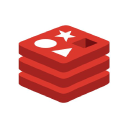
RedisGraph
RedisGraph is a property graph database module built for Redis, leveraging linear algebra on sparse adjacency matrices for efficient graph operations. This free and open-source solution, available for Mac and Linux, stands out for its innovative approach to graph database implementation. It's an excellent AllegroGraph alternative for those already using Redis or looking for a high-performance, in-memory graph database.
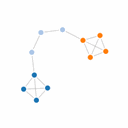
NetworkX
NetworkX is a Python language software package designed for the creation, manipulation, and study of complex networks. While not a standalone graph database like AllegroGraph, its free and open-source nature, coupled with availability on Windows and Linux, makes it an invaluable tool for graph analysis, drawing, and prototyping in a Python environment. It's a strong AllegroGraph alternative for data scientists and researchers focused on graph theory and algorithmic exploration.

GraphStack.io
GraphStack™ provides open-source distributions of Neo4j Enterprise, compiled and packaged by the GraphStack.io Team. This free and open-source option, available across Mac, Windows, Linux, and BSD, essentially offers a robust graph database experience based on Neo4j's core. For users seeking an open-source enterprise-grade graph database as an AllegroGraph alternative, GraphStack.io provides a reliable and supported pathway.
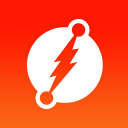
Dgraph
Dgraph is a distributed graph database known for its low latency, high throughput, horizontal scalability, and ACID transactions. Available for free on Mac, Windows, and Linux, it provides a powerful platform for building applications that require fast and reliable graph operations. As an AllegroGraph alternative, Dgraph is well-suited for projects demanding high performance and scalability in a graph database environment.
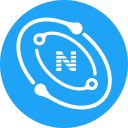
nebula graph
Nebula Graph is a distributed, fast, and open-source graph database featuring horizontal scalability and high availability. Available for free on Linux, and as both self-hosted and SaaS solutions, it's designed for handling massive datasets and high concurrency. For those needing a highly scalable and resilient graph database as an AllegroGraph alternative, Nebula Graph presents a compelling open-source option.
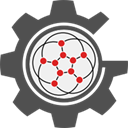
Trinity Graph Engine
Trinity Graph Engine (GE) is a distributed, in-memory, large graph processing engine built on a strongly-typed RAM store and a general computation engine. This free, web-based solution focuses on efficient graph processing for complex queries. As an AllegroGraph alternative, Trinity Graph Engine is particularly suitable for applications that prioritize in-memory performance and distributed processing for large-scale graph analytics.
Choosing the right AllegroGraph alternative depends heavily on your specific use case, existing infrastructure, team expertise, and performance requirements. Each of these options offers distinct advantages, from open-source flexibility and community support to specialized features for scalability or in-memory processing. We encourage you to explore these alternatives further to find the best fit for your next graph-powered project.